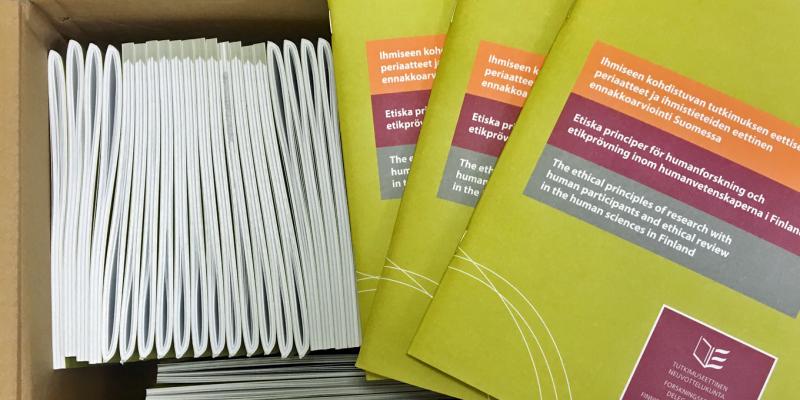Transparency regarding reseachers’ potential conflicts of interest is important in order to retain the trust of society and citizens in science.
All researchers have interests and thus also potential conflicts of interests. A conflict of interest means a risk arising from circumstances whereby an expert’s primary aim of reaching an objective decision is influenced by a secondary aim of benefit to themselves or a family member.
These interests may be linked to work or they may be personal. Typical interests associated with a researcher’s work are gifts and funding granted for the research, and serving on expert bodies. Personal interests arise, for example, on the basis of family relationships or ownership. Interests are usually considered to be financial. An employment relationship is also an interest because an employee has committed to uphold the values and strategy of their employer.
The Finnish National Board on Research Integrity’s (TENK) guidelines on responsible conduct of research (the RCR guidelines) state that “Sources of financing, conflicts of interest or other commitments relevant to the conduct of research are announced to all members of the research project and reported when publishing the research results.” TENK has also drawn up a CV template for researchers, stating that “A researcher must present, in full, all merits and commitments or potential conflicts of interest that are pertinent to the application or to the career stage of the applicant.”
According to the RCR guidelines, “Researchers refrain from all research-related evaluation and decision-making situations, when there is reason to suspect a conflict of interest.” This also concerns researchers when “working as teachers or instructors [...] as well as when functioning as experts in their field”. Grounds for disqualification are set out in Section 28 of the Finnish Administrative Procedure Act.
Everyone has interests but they do not automatically cause conflicts of interest or constitute grounds for disqualification for a particular task. Transparency regarding reseachers’ conflicts of interest is important in order to retain the trust of society and citizens in science.
The field of politics has the greatest experience of reporting potential conflicts of interests. As far as the scientific field is concerned, medical science has required the in conjunction with publications and education for years now.
Pekka Louhiala, docent, lecturer in medical ethics, University of Helsinki
Declaration of interests:
Part-time private practitioner, Mehiläinen Hämeenlinna
Vice chair, Finnish National Board on Research Integrity
Further information:
Identifying and resolving conflicts of interest for doctors in further training: http://www.lsv.fi/wp/wp-content/uploads/2013/03/Eturistiriitojen_tunnist...
Responsible Conduct of Research Guidelines: http://www.tenk.fi/sites/tenk.fi/files/HTK_ohje_2012.pdf
Template for researcher’s curriculum vitae: http://www.tenk.fi/en/template-researchers-curriculum-vitae
Administrative Procedure Act: https://www.finlex.fi/en/laki/kaannokset/2003/en20030434
You might also be interested in
Tämä teos on lisensoitu Creative Commons Nimeä 4.0 Kansainvälinen -lisenssillä. Detta verk är licensierat under en Creative Commons Erkännande 4.0 Licens. This work is licensed under a Creative Commons Attribution 4.0 International license.


